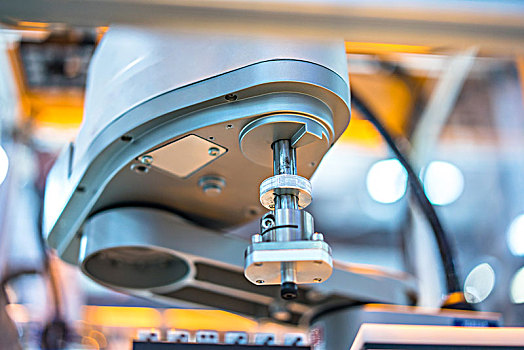Intel Gaudi 2 & Gaudi 3: AI Powerhouses

In the realm of electronic components, Intel has a long-standing reputation for innovation and high-performance solutions. Intel's Gaudi 2 and Gaudi 3 accelerator cards have garnered significant attention in the fields of deep learning and artificial intelligence. Not only do they reflect Intel's engineering excellence, but they also offer faster and more efficient computing solutions for data centers. In this comprehensive article, we will explore these remarkable products and conduct an insightful comparison.
Gaudi 2: The Second-Generation Deep Learning Accelerator Card Intel's Gaudi 2 accelerator card stands as the second-generation pioneer in the realm of deep learning. It builds upon the experiences of its predecessor, undergoing comprehensive enhancements to meet the evolving demands of computing. Gaudi 2 boasts:
· Superlative Performance: Powered by advanced chip technology, Gaudi 2 delivers exceptional performance, excelling in training and inference tasks for deep learning models.
· Energy Efficiency: This accelerator card prioritizes energy efficiency, ensuring high performance while effectively managing power consumption, thus reducing the overall operational costs of data centers.
· Multitasking Prowess: Gaudi 2 features multitasking support, enabling it to efficiently handle multiple tasks concurrently, thereby enhancing computing efficiency.
Gaudi 3: The Third-Generation Deep Learning Accelerator Card Gaudi 3 represents Intel's latest achievement in the realm of deep learning accelerator cards. It not only retains the exceptional features of Gaudi 2 but also introduces several innovations:
· Elevated Performance: Gaudi 3 integrates more potent processing capabilities, enabling it to tackle more complex deep learning tasks and provide faster computing speeds.
· Enhanced Energy Efficiency: Compared to its predecessor, Gaudi 3 further elevates energy efficiency, reducing data center operational costs through more effective energy management.
· Expanded Application Scope: Gaudi 3's multitasking capabilities make it suitable for a broader range of applications, including speech recognition, image processing, and natural language processing.
Applications in the Electronic Components Industry Both Gaudi 2 and Gaudi 3 accelerator cards find extensive applications in the electronic components industry, delivering exceptional performance for various deep learning and artificial intelligence tasks. Here are specific examples:
· Image Recognition and Processing: These accelerator cards excel in handling complex image recognition tasks, such as medical image analysis. Medical devices like CT scanners can benefit from their robust performance, swiftly and accurately analyzing and identifying signs of diseases.
· Speech Recognition: In the field of speech recognition, Gaudi 2 and Gaudi 3 support real-time speech-to-text tasks, used in applications like virtual assistants and call center operations. These cards are invaluable for speech recognition models that require high accuracy and speed.
· Natural Language Processing: In natural language processing tasks, such as automatic translation and sentiment analysis, these accelerator cards exhibit exceptional performance. They accelerate various NLP applications, including virtual assistants, translation tools, and social media analysis.
Comparison and Conclusion
While both Gaudi 2 and Gaudi 3 are outstanding deep learning accelerator cards, they do exhibit key differences. Gaudi 3 slightly outperforms Gaudi 2 in terms of performance and multitasking support, making it suitable for a broader range of applications. However, Gaudi 2 remains a powerful product, capable of handling numerous deep learning tasks.
Regardless of your choice, you can trust in Intel's engineering capabilities and outstanding quality. These accelerator cards not only provide exceptional performance for professionals in the deep learning field but also contribute to meeting the increasing demands of computing, especially in large-scale data processing and machine learning.
In summary, Intel's Gaudi 2 and Gaudi 3 accelerator cards represent the latest technological advancements in the deep learning field. Whether you are a data center administrator or a deep learning researcher, these remarkable products are worth considering and paying attention to.
Solemnly declare: The copyright of this article belongs to the original author. The reprinted article is only for the purpose of disseminating more information. If the author's information is marked incorrectly, please contact us to modify or delete it as soon as possible. Thank you for your attention!







